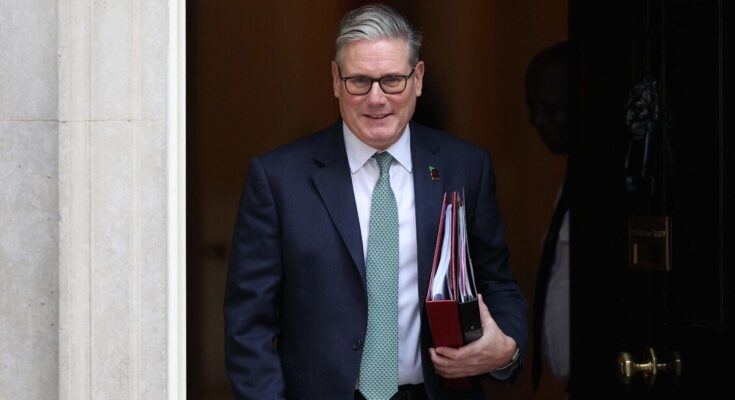There is no longer unlimited asylum for refugees. Post-Brexit Britain announced an unprecedented tightening of the island’s historic traditions of hospitality, and this came under a faltering, moderate Labor government, led by Sir Keir Starmer: committed to pursuing the right to try to stop the (so far futile) bleeding of a consensus that had been certified for months by all the polls in favor of forces like Reform UK, a rampant Trumpian-inspired party led by Nigel Farage.
The crackdown, which is another attempt to curb “illegal” immigration and the magnitude of migration flows in general, was unveiled in an interview with the BBC by the Home Secretary, Shabana Mahmood: a daughter of (Pakistani) immigrants, like her various Tory predecessors before her. He will illustrate the details to the House of Commons early this week. However, the substance that the media had been anticipating for days seemed clear. At least in its intent, and its effectiveness remains to be verified.
“I will end the UK’s golden ticket for asylum seekers”, promised Mahmood, specifically mentioning among the measures to be taken a reduction in guaranteed residency for refugees to 30 months: with the obligation of regular reviews and the possibility – in the meantime – of formal repatriation if the country of origin is once again declared “safe”; while the right to apply for a permanent residence permit will be extended to 20 years, four times more than the current situation.
Current UK law guarantees a 5-year residence permit for anyone recognized as a refugee and the possibility of obtaining an indefinite residence permit (with subsequent citizenship rights) after the expiry of this five-year period: an automatic procedure, in fact, that does not provide for revision except for involvement in serious crimes.
According to the paper, Starmer’s government – after repeatedly committing to a hard line on immigration, and experiencing multiple failures despite around 50,000 advertised expulsions last year, a 23% increase compared with the previous Conservative team – has taken inspiration from the Danish axe. Where the rate of asylum requests has been reduced to its lowest point for 40 years.
The aim remains to try to prevent the landing of “illegal immigrants” across the Channel, using so-called smugglers’ ‘small boats’ sailing from France: a phenomenon that continues to grow, despite promises, and since the start of 2025 has seen at least 39,000 people arrive on British shores, many of them from war-torn regions, more than in the whole of 2024.
The head of the Home Office in Paris justified Britain’s restrictive intentions, arguing that difficulties in controlling illegal immigration from his country to the island were precisely related to the more “permissive” rules London has so far secured on asylum compared to its European neighbors.
The right-wing opposition in Westminster, from the Conservatives to Farage followers, instead rejected the measures outlined by the Labor executive as “superficial” and inadequate. It is almost a desperate attempt by Sir Keir to avoid a collapse of consensus and defend himself against the winds of rebellion now blowing against his leadership even within the ruling party. Meanwhile, from the NGO world, from the more progressive soul of the Labor Party and from radical left-wing formations such as Zack Polanski’s Green Party, condemnation of the betrayal of the principles of solidarity and human rights is increasing.
Accusations Mahmood rejected, claiming “the biggest revision of asylum policy in modern times” was necessary in response to a genuine alleged “emergency”. “I categorically reject the idea that addressing this problem – he defended himself – means accepting the arguments of the far right.” “This country is proud of its tradition of welcoming people fleeing danger, but our generosity attracts illegal migrants” and this phenomenon must be addressed, he continued: “For me, this is a moral mission, because I can see how irregular immigration divides nations and divides communities.”
Reproduction protected by law © Copyright ANSA


